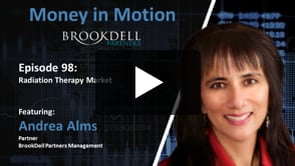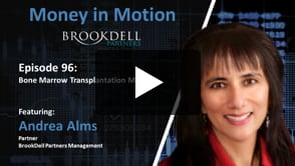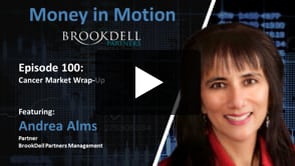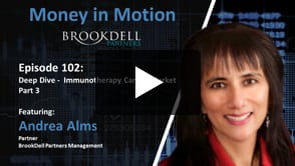Hedge Fund Dashboard:
Top Hedge Fund News, Member Posts, Hedge Fund Daily Indices and more!
Without doubt, the quickest way to heat the blood of any seasoned hedge fund professional is to mention third-party marketing. Little else without exception, (well possibly Mifid II, President Trump or Brexit), brings out such polarised views.
It’s easy to bash third-party marketers (TPMs), as most industry professionals, whether it be buy- or sell-side, will have had some experience of their services – and generally it hasn’t been good. However, if the relationship is managed correctly it can be most advantageous.
Placement agent or TPM, what’s the difference?
Nothing at all – placement agents tend to be bigger, with a focus on private equity, but they still raise assets for hedge funds. TPMs are generally smaller operations based around one industry ‘expert’ leveraging their connectivity with an investor base.
Who benefits most from a TPM relationship?
It’s not for everyone – if you’re a small/mid-sized fund with a distribution person/team then appointing a TPM will invariably cause friction between the two. Although some PMs think this competition is healthy and stimulates asset inflows…trust me, it doesn’t.
It creates tension, frustrates the in-house team and sends mixed messages to investors. The last thing you want, especially as an emerging fund, are confused messages or negativity from aggrieved parties seeping into the marketplace to investors.
By getting out and speaking to clients about the situation, and making them feel part of the conversation, you’re less likely to face a backlash from themDo your due diligence
Don’t take a TPM’s word on how brilliant they are; check their references and success stories. Investors have to deal with several TPM calls a day and this can be a source of great frustration.
It’s wise therefore to check in with investors and even your cap intro team to get their perspective. You don’t want a salesperson with whom investors refuse to deal with!
Set clear terms
It’s absolutely vital to set clear objectives from the start. Set a probation period and identify a list of target investors in one geography to begin with. This will give both parties time to bed in and iron out any problems.
For smaller funds and new managers, the option of success fee-only agreements with TPMs is most appealing.
Cash flow demands are huge for managers and a marketing budget is the stuff of dreams, so having an asset to promote and market the fund ‘for free’ is beneficial. But it’s vital your fund is marketed in a professional and diligent way, otherwise it’ll damage your appeal with investors.
The fees or retainer should be sensible. TPMs should be rewarded for their successes, but not in a way that excessively burdens a manager’s balance sheet i.e. don’t give up 50% of your management/performance fee if it will impact running costs and kill the business.
Start off with a graded structure: 12% for assets raised up to $30m, 15% for $50m, 17.5% for $75m and so on.
If the TPM generates solid leads and raises assets for the manager after the probation, and the relationship is working well, then it makes sense to place the TPM on a small retainer to further incentivise the sales effort.
Negotiate sunset, derivative and repeat allocation clauses
The last thing you want is to be paying a TPM for the lifetime of the investment.
Make it clear there is an 18-24 month sunset after which the reward agreement finishes. Similarly, if an investor brings onboard other allocators, the manager needs to be clear with the TPM as to how they will be remunerated, if at all.
Lastly, if the manager is fortunate to receive further allocations from an investor, then it’s sensible to have a repeat allocation sunset clause in place.
Frustrations towards excessive enquiries can be a significant obstacle to accessing said allocators.
It’s worth giving a TPM a company email address – it could be the tipping point between an invitation being accepted or consigned to the trash. It also provides visibility and control over the communications, in compliance with regulations.
In keeping with TPM oversight, it is essential to receive comprehensive monthly and quarterly reviews, which allow for a more focused and balanced approach to the fund’s marketing and growth strategy.
If sensibly managed, TPMs can be an excellent addition to a manager’s arsenal, but if precautions aren’t taken, they can cause a lot of headaches.
Do you have something to get off your chest or think you can contribute insight from a recent experience? Get in touch with [email protected]
Undercover IR: Third-party marketers – dos and don’ts on HFM InvestHedge.
Today's Hedge Fund Headlines:
Access Over 250K+ Industry Headlines, Posts and Updates
Join AlphaMaven
The Premier Alternative Investment
Research and Due Diligence Platform for Investors
Free Membership for Qualified Investors and Industry Participants
- Easily Customize Content to Match Your Investment Preferences
- Breaking News 24/7/365
- Daily Newsletter & Indices
- Alternative Investment Listings & LeaderBoards
- Industry Research, Due Diligence, Videos, Webinars, Events, Press Releases, Market Commentary, Newsletters, Fact Sheets, Presentations, Investment Mandates, Video PitchBooks & More!
- Company Directory
- Contact Directory
- Member Posts & Publications
- Alpha University Video Series to Expand Investor Knowledge
- AUM Accelerator Program (designed for investment managers)
- Over 450K+ Industry Headlines, Posts and Updates






